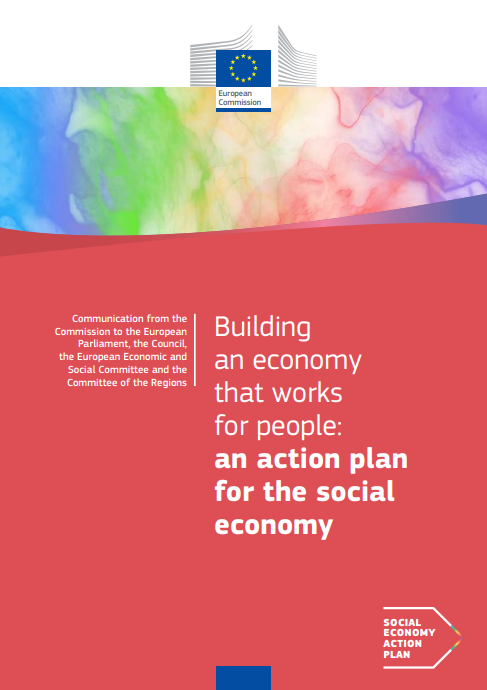On 9 December 2021, the European Commission adopted a new action plan on the social economy. With the action plan, the Commission put forward concrete measures to help mobilise the full potential of the social economy, building on the results of the 2011 Social Business Initiative and the 2016 Start-up and Scale-up Initiative.
The aim of the action plan is to enhance social investment, support social economy actors to start-up, scale-up, innovate and create jobs. It will do this through a series of initiatives in the following three areas:
- creating the right framework conditions for the social economy to thrive
- opening up opportunities (including access to finance) and support for capacity building
- enhancing recognition of the social economy and its potential
The time horizon of the action plan is until 2030.
The action plan is available in all EU languages here. Layouted versions are available in English, French and German.
The action plan was accompanied by two staff working documents:
- The first provides an analysis of challenges and opportunities for the social economy in Europe and a summary of the consultations conducted and evidence gathered since the action plan was announced at the beginning of 2021.
- The second outlines scenarios for the digital and green transition of the industrial ecosystem. It also indicates what actions and joint commitments are needed to accompany this transition. This work ultimately culminated in the transition pathway for the proximity and social economy ecosystems.

10 Key actions
|
Propose a Council Recommendation on developing social economy framework conditions. (see section 3.1) |
2023 |
|
Organise webinars and workshops for public officials in relation to various policy fields with relevance for the social economy. (see section 3.1) |
2022-2023 |
|
Launch a new initiative under the Single Market Programme supporting the creation of local and regional partnerships between social economy entities and mainstream businesses, enabling a ‘buy social’ business to business market. (see section 3.3) |
2022 |
|
Improve access to finance for social entrepreneurs in the Western Balkans, the Eastern Partnership and Southern Neighbourhood, by launching actions to boost grassroots initiatives and support intermediaries to develop financial products adapted to the needs of social economy entities. (See section 3.5) |
2023 |
|
Launch a new single EU Social Economy Gateway to provide a clear entry point for social economy stakeholders, other relevant actors and individuals seeking information on relevant EU funding, policies and initiatives. (see section 4.1) |
2023 |
|
Launch a new Youth Entrepreneurship Policy Academy, which will foster youth entrepreneurship, including for female and social entrepreneurs by working with national policy makers and youth entrepreneurship networks. (see section 4.1) |
2022 |
|
Launch new financial products under the InvestEU programme aimed at mobilising private financing targeted at the needs of social enterprises at different stages of development. (see section 4.2) |
2022 |
|
Support the development of social impact measurement and management to assist social economy actors in the EU. (see section 4.2) |
2023 |
|
Launch a transition pathway for the “Proximity and social economy” industrial ecosystem to further work with public authorities and stakeholders on the implementation of the action plan in this area. (see section 4.3) |
2022 |
|
Boost social innovation through a new approach to transnational cooperation under the ESF+ and the setting up of a new “European Competence Centre for Social Innovation”. (see section 4.4) |
2022 |
Documents
- български
- español
- čeština
- dansk
- Deutsch
- eesti
- ελληνικά
- français
- hrvatski
- italiano
- latviešu
- lietuvių
- magyar
- Malti
- Nederlands
- polski
- português
- română
- slovenčina
- slovenščina
- svenska

